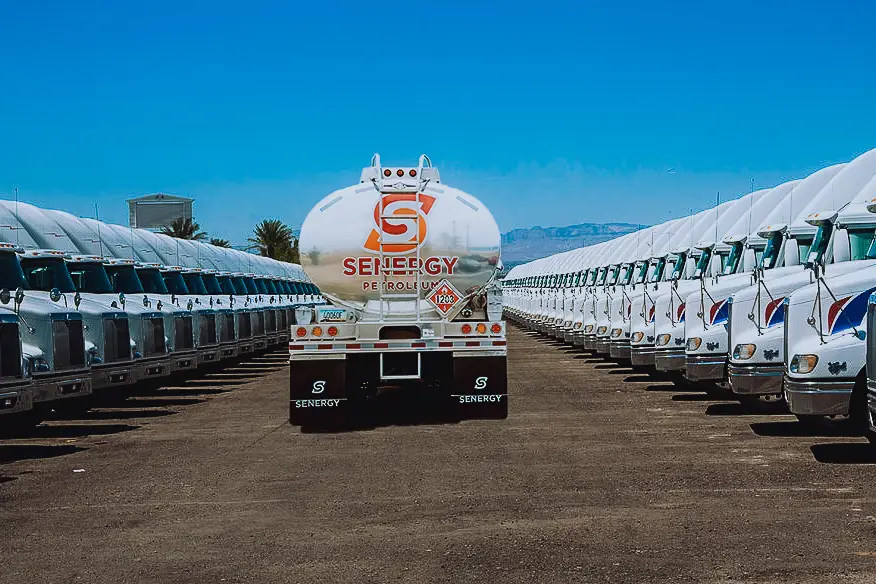What Does DEF Do? A Simple Breakdown for Truck Owners
If you own a truck, you’ve likely heard of DEF (Diesel Exhaust Fluid) and might have seen it at the pump or been asked to add it to your vehicle. But as a truck owner, you might be wondering: what exactly is DEF, and why do we need it? What happens in your engine when it’s burned up?
Let’s break it down in simple terms, no science degree required. By the end of this, you’ll understand why DEF is important, how it works, and why it’s actually a friend to your diesel engine, not an enemy.
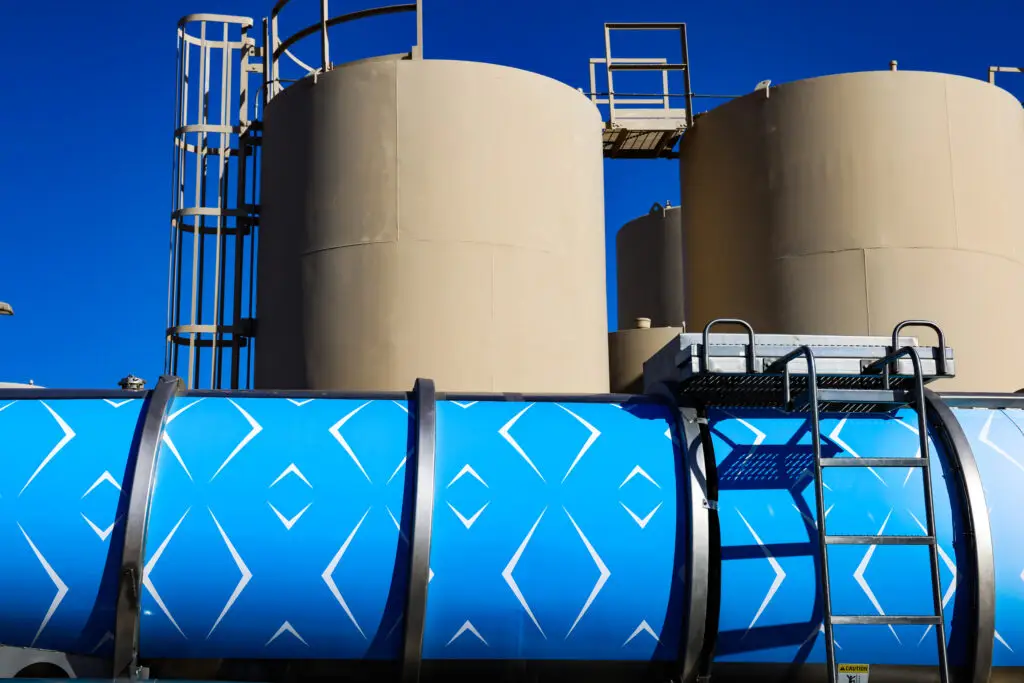
So, What is DEF Made Of?
Diesel Exhaust Fluid is actually kind of basic stuff. It’s not some extraterrestrial, high-technology chemical cocktail. It’s 67.5% deionized water and 32.5% urea. That’s it. Urea is a chemical that appears on fertilizers and even within the human body essentially, it’s a nitrogen compound. Mix in the proper amount of water, and it’s a fluid that is extremely simple to have lying around to ensure your diesel truck runs well and in top working condition. If asked what DEF consists of, the answer is simply incredible. It’s not harmful in its raw state and will not burn or be harmful through proper processing. But though it seems so elementary, how DEF works with your diesel engine is quite ingenious. DEF is treated, or it has no minerals and will not clog up or damage the exhaust system. Urea is included in the formula to minimize nitrogen oxide, one of the large diesel emissions. Injected into the exhaust stream, the DEF serves as a catalyst to decompose lethal emissions into nontoxic nitrogen and water vapor emitted harmlessly into the atmosphere.
So while DEF is an easy-to-concept fluid, it’s what keeps your truck in serious rigid emission requirements.
The Actual Work of DEF in Your Truck
What does DEF do? Let’s clear it up: DEF isn’t a fuel additive; it’s added to a separate tank and used in a process called Selective Catalytic Reduction (SCR), which helps clean up your truck’s emissions.
When your diesel engine burns fuel, it produces nitrogen oxides (NOx)—harmful gases bad for both the environment and your lungs. DEF helps by being added to the exhaust stream before the gases leave the truck. When mixed with hot exhaust and run through the catalytic converter, DEF breaks down NOx into harmless nitrogen and water vapor.
In short, DEF converts dirty exhaust into cleaner air, ensuring your truck stays compliant with emission standards. Without it, diesel engines wouldn’t meet government pollution regulations. DEF also keeps your engine running smoothly by preventing harmful emissions from affecting other engine components, ensuring your truck stays in top shape.
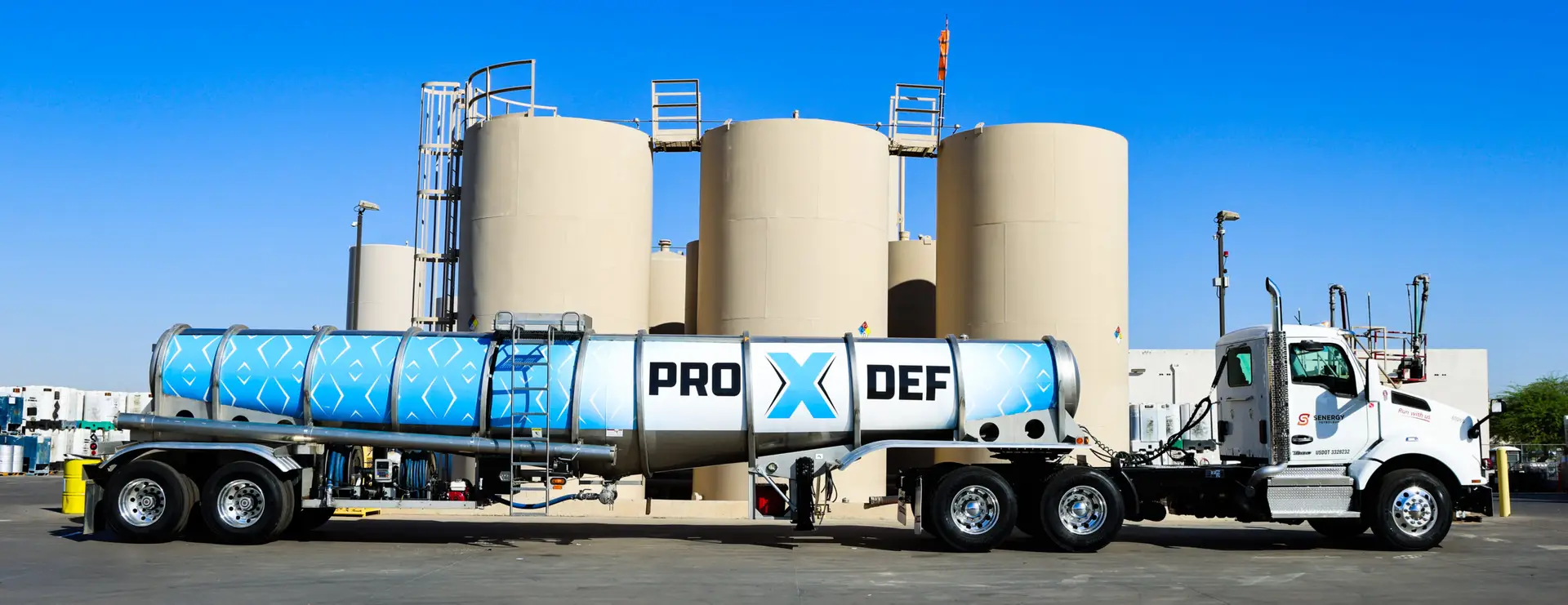
Why You Should Care About DEF
Truckers often see DEF as just another cost and a task to remember to re-certify, but it’s actually doing a lot more for you. DEF helps keep your truck running smoothly with cleaner emissions, which translates to fewer repair visits, better mileage, and lower long-term costs. It also plays a crucial role in extending the life of your engine parts. By reducing soot particles and keeping exhaust gases cleaner, DEF minimizes engine wear and tear, which can save you thousands in future repairs. After all, nobody wants their truck in the shop for emissions issues—it’s a financial and time drain.
One of the simplest ways to avoid costly breakdowns and repairs is to keep your DEF supply topped up. It helps prevent major issues before they start, keeping your truck in top condition and avoiding expensive parts replacements. Plus, DEF ensures your truck remains compliant with government environmental standards. Emissions regulations are strict, and failing to meet them could result in fines or your truck being grounded. Keeping DEF in supply is one way to stay on top of those requirements and keep your truck on the road.
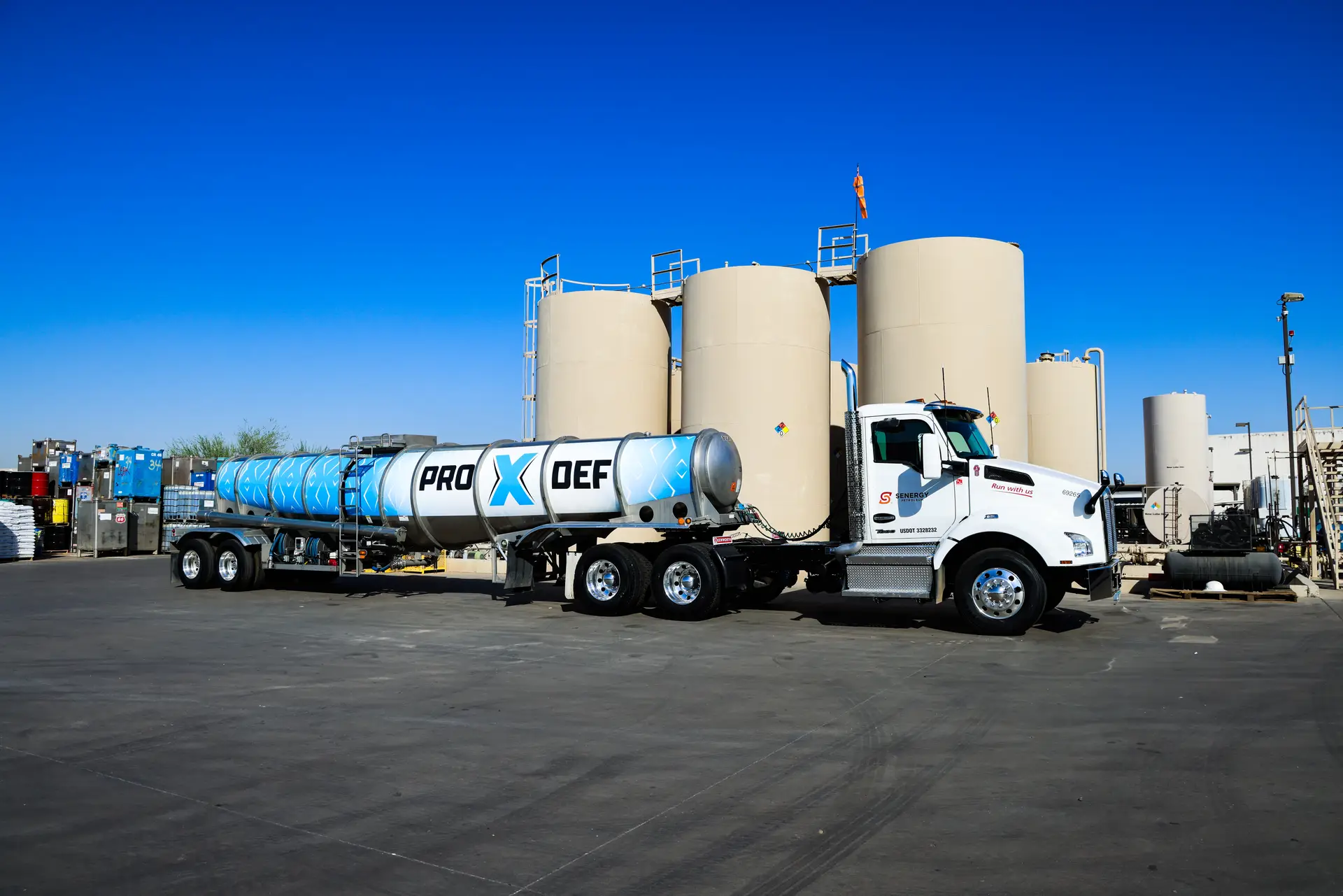
What If You Use Up All Your DEF
Here’s something every truck owner should know: your truck won’t keep running when the DEF tank is empty. Many newer diesel trucks come with a warning system that alerts you when the DEF level is low, giving you a chance to top it off before it becomes a problem. Typically, you’ll receive a series of warnings, so you have time to address it.
However, if you ignore these warnings, your truck will eventually enter “limp mode,” where power is significantly reduced, and you won’t be able to drive normally. In the worst-case scenario, the truck won’t even start unless DEF is added. This is a built-in safeguard to ensure the truck’s emissions system is functioning properly. While it may seem extreme, it’s there to keep you in compliance with emissions regulations. Running without DEF would be like releasing far more emissions than allowed.
The good news is that the warning system is designed to give you plenty of time to refill the DEF, so you can keep your truck running smoothly. It’s no more complicated than keeping an eye on your fuel level—just refill when it’s low, and your truck will stay in top condition without any major issues.
How Often Do You Have to Refill DEF
How much DEF you’ll use depends on how much you drive and your truck type. On average, diesel trucks consume about 2–3 gallons of DEF every 800 to 1,200 miles. While it might seem like a lot, it goes a long way, and you won’t need to fill it up as often as gas. Most trucks have a DEF gauge on the dashboard, so you can monitor it as easily as oil or coolant levels. Keeping track of DEF usage will ensure you never run low when you can’t refuel.
Remember, don’t let DEF sit unused for long periods. It typically lasts about two years if stored properly—in a cool, dark place, in a sealed, clean container. DEF that’s brown or yellow is contaminated and can damage your truck’s SCR system.
The good news is that DEF consumption is consistent, so after a few refills, you’ll have a good sense of when to top off, well ahead of your truck’s service schedule.
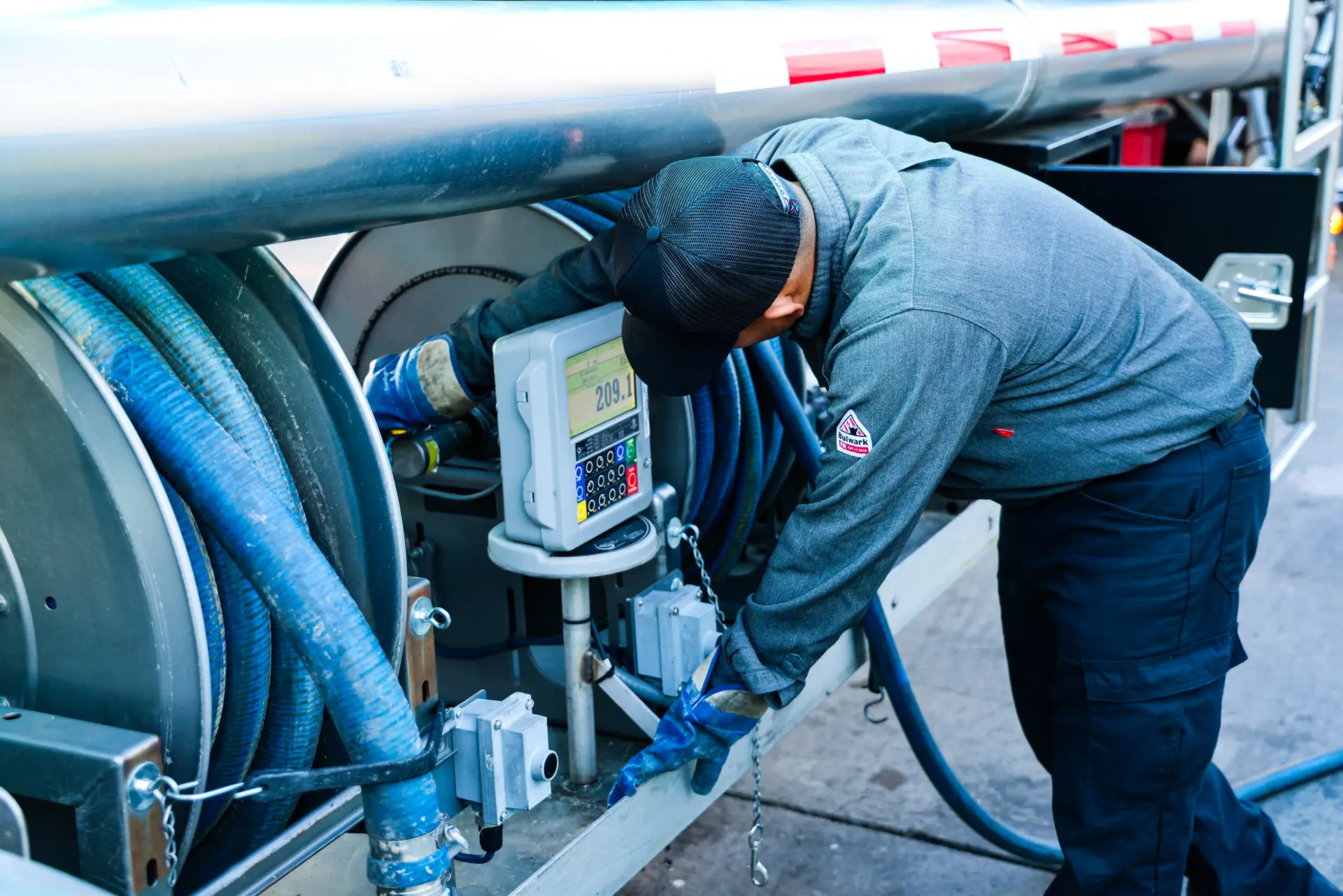
Myths and Misconceptions About DEF
There’s a lot of misinformation out there about DEF. Some believe it’s a money grab by truck manufacturers or that it can damage your engine. Neither is true. DEF doesn’t even touch your fuel system or engine—it only reacts with exhaust gases after combustion. Some think they can simply remove the DEF system to avoid dealing with it. While it’s been attempted, it’s illegal at the federal and state level and can result in hefty fines, especially for over-the-road commercial trucks. Removing the system could also cause check engine lights to come on and lead to failed inspections.
Another myth is that DEF harms your truck. That’s not the case. As long as you’re using the correct, ISO 22241-certified DEF, you’re fine. Don’t fill the DEF tank with water or homemade concoctions, though, or you’ll be in trouble. DEF doesn’t affect your fuel system; it works in the exhaust system to reduce emissions. It’s a small but essential part of modern diesel engines, keeping your vehicle clean and compliant with regulations. Stick to the manufacturer’s recommendations, and DEF won’t cause any issues.
DEF Diesel Exhaust Fluid Is Here to Stay
Whether you like it or not, DEF is here to stay in the world of diesel engines, especially as more stringent emissions standards loom on the horizon globally. Instead of complaining, it’s smarter to embrace it.
In the end, DEF isn’t something to dread; it’s doing its job. It’s helping your truck stay in compliance, perform better, and stay healthier in the long run. It’s a small addition to your routine with a huge impact. Diesel truck manufacturers have fully embraced DEF as a valuable tool, and it’s readily available for most newer trucks. The bottom line: DEF isn’t just a trend—it’s the future of diesel engines. By using it, you reduce harmful emissions, save on repair costs, and avoid costly fines. It’s a win-win that keeps your truck running cleaner and longer.
Evolution of Diesel Engines
Diesel engines have come a long way in the past fifty years. They’re cleaner, more powerful, and more fuel-efficient than older models—and the same goes for the technology behind them, including DEF.
The next time you fill up your DEF tank, you’ll appreciate that it’s not just another routine task. It’s an essential part of your truck’s performance and longevity. Now that you understand what DEF is and what it does, you have the knowledge to keep your rig running at its best without hesitation.
